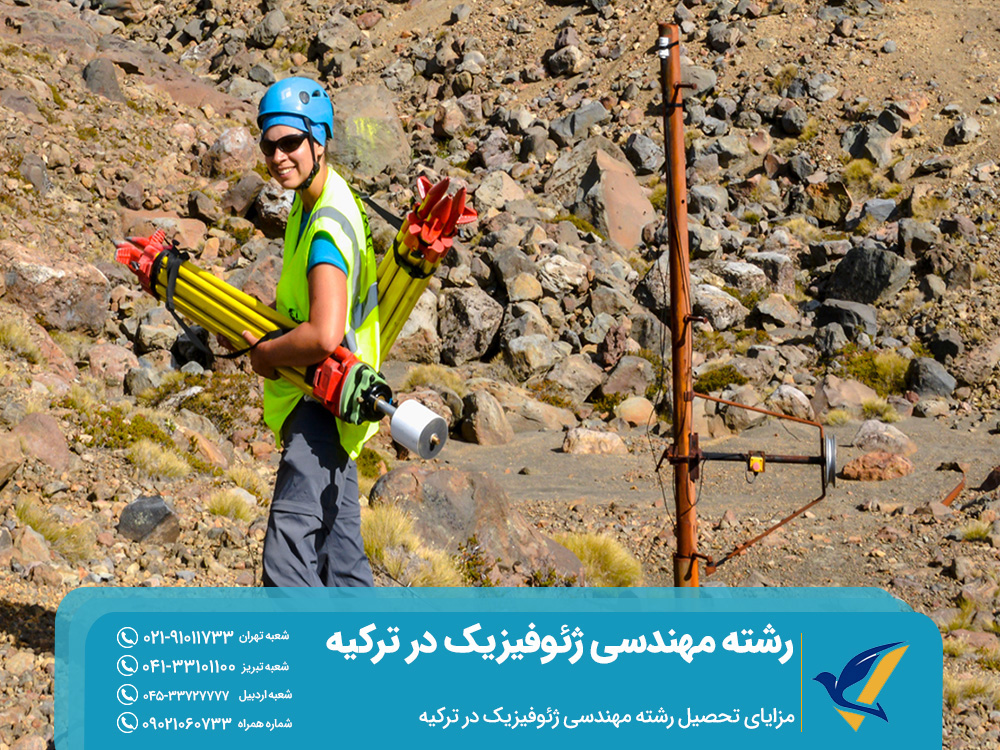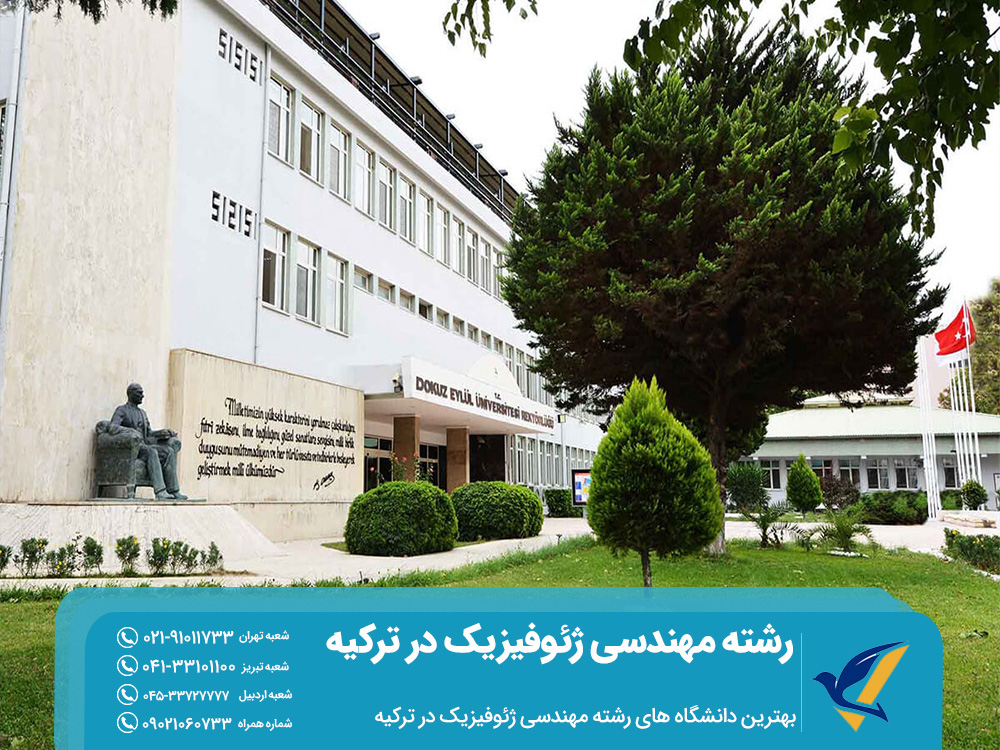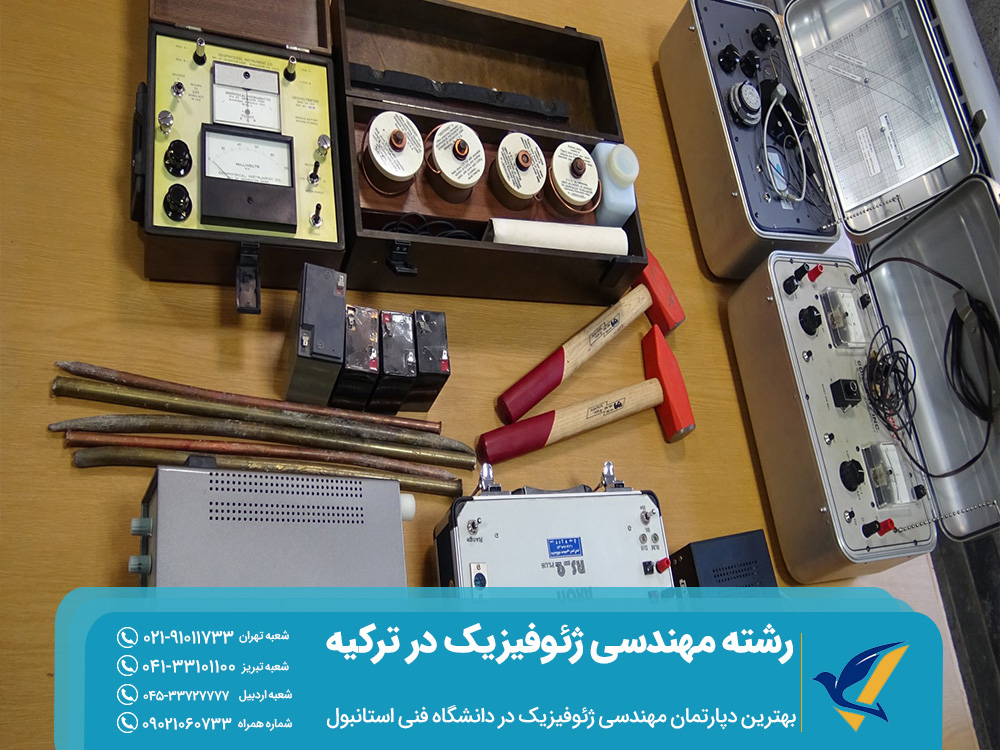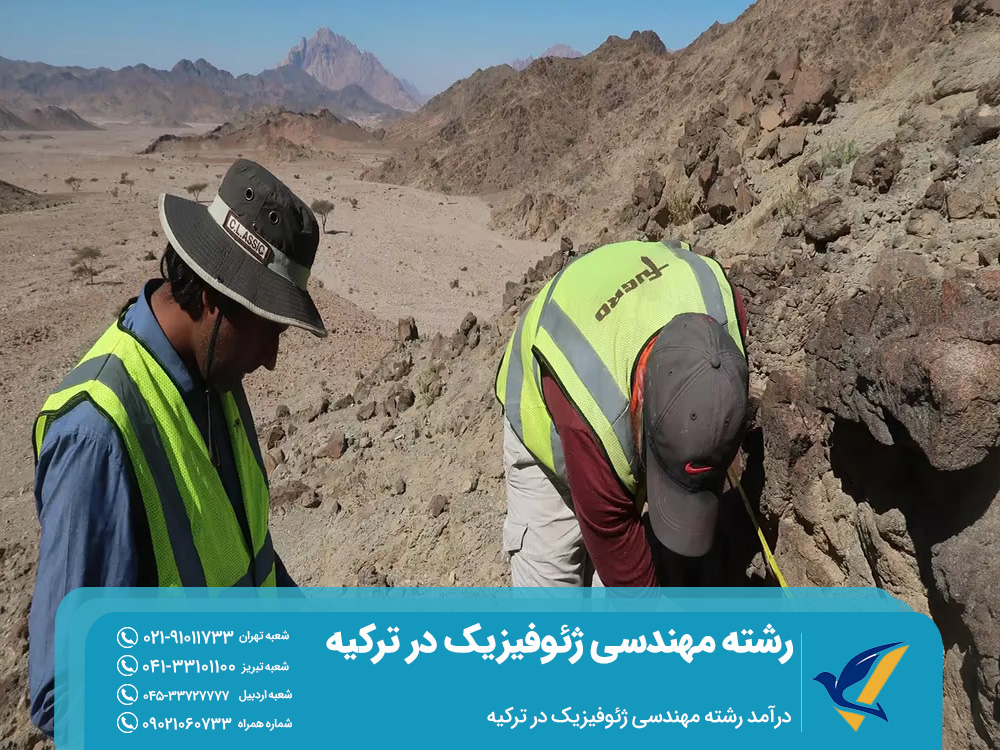Geophysical Engineering in Turkey
Geophysical engineering in Turkey involves the study of the Earth’s interior, earthquakes, foundation analysis of various structures, and research into topics such as ancient artifacts and human-made structures. The term “geophysics” is derived from the Greek words “Gaia” (Earth) and “Physis” (Physics), which together mean “the physics of the Earth.”
This field of study is divided into three primary branches: applied geophysics, seismology, and earth physics, each offering a unique opportunity for students interested in studying geophysics in Turkey. In this article, we will explore these areas further and look at the best universities for geophysics studies in Turkey.
What is a Geophysical Engineer?
A geophysical engineer specializes in understanding the natural properties and internal processes of the Earth. Professionals in this field work on challenges such as assessing natural hazards, analyzing locations for underground constructions, evaluating climate changes, and considering resources such as water, food, and energy.
Students studying geophysical engineering in Turkey often work on extracting minerals and rare stone resources from the Earth. Geophysical engineers typically assist mining, oil, and gas companies in evaluating and organizing their projects. Geophysicists use their scientific knowledge to safely help extract materials. A geophysical engineer usually specializes in one of the following areas:
- Solid Earth
- Fluid Earth
- Upper Atmosphere
Branches and Specializations of Geophysical Engineering in Turkey:
- Seismology: Studies earthquakes and the propagation of elastic waves through the Earth.
- Seismography or Seismology: Focuses on the propagation of waves in shallow Earth layers and is especially useful in mineral exploration, particularly in oil exploration.
- Archaeological Geophysics: Primarily involves methods such as magnetic, electromagnetic, and radar surveys.
- Magnetometry: Studies magnetic anomalies for exploration of mineral and hydrocarbon resources, as well as archaeological investigations.
- Gravimetry: Focuses on exploring mineral and hydrocarbon resources.
- Electromagnetism: Widely used in hydrocarbon exploration and the identification of old pipelines.
These fields offer dynamic research opportunities and career prospects, especially in the oil and gas industry, mining, and archaeology, making geophysical engineering in Turkey a fascinating and practical field to pursue.

Advantages of Studying Geophysical Engineering in Turkey
As you may know, universities in Turkey are highly regarded worldwide, and students graduating with degrees from these institutions can easily pursue employment opportunities in Europe. Studying Geophysical Engineering in Turkey offers the added benefit of allowing graduates to obtain work residency, enabling them to work for organizations and private companies across the globe.
In addition, institutions like the Disaster and Emergency Management Authority (AFAD) and municipalities are among the government agencies that require geophysical engineers. Numerous geophysical companies also seek specialists in this field.
Admission Requirements for Geophysical Engineering in Turkey
Geophysical Engineering is offered at the undergraduate, master’s, and doctoral levels in Turkey. Typically, to study this field at the undergraduate level, you must take an entrance exam and achieve the required score set by the desired university. The general admission conditions for Turkish universities are as follows:
- Hold a high school diploma.
- Take the YÖS exam or equivalent international exams.
- Provide a language proficiency certificate based on the language of instruction at the university.
Prospective students should note that there are no age restrictions for admission at any level. As long as the admission conditions are met, students can begin studying at the best universities in Turkey.
Master’s Degree Admission Conditions for Geophysical Engineering in Turkey
After obtaining a bachelor’s degree and completing a 4-year undergraduate program, students wishing to pursue a master’s degree in Geophysical Engineering in Turkey can continue their studies. Like the undergraduate level, the master’s program typically involves an entrance exam, and candidates must achieve the required score. The conditions for admission to the master’s program in Geophysical Engineering are as follows:
- Hold a bachelor’s degree.
- Take the ALES exam or equivalent international exams.
- Provide a language proficiency certificate based on the language of instruction at the university.

PhD Admission Requirements for Geophysical Engineering in Turkey
The PhD admission process for Geophysical Engineering in Turkey is similar to that of the master’s program, requiring both language proficiency and an entrance exam. Generally, the following documents are required for admission to a PhD program in Geophysical Engineering:
- Master’s degree certificate
- Proof of passing the ALES exam or equivalent international exams
- Language proficiency certificate based on the language of instruction at the university
- Interview (if requested)
Necessary Documents for Enrollment in Geophysical Engineering in Turkey
Once accepted into a Geophysical Engineering program in Turkey, students need to complete the registration process. The necessary documents for enrollment include:
- High school diploma and its certified translation
- High school transcript and its certified translation
- Language proficiency certificate (if applicable)
- Entrance exam certificate (if applicable)
- Blue card (for Turkish citizens)
- Photocopy of passport
- Residence permit
Required Entrance Exams for Geophysical Engineering
The required entrance exams for Geophysical Engineering students vary by university and include:
- YKS
- TR-YOU
- YES
- SAT
- ACT
- GCE
- IB
- Matura
- Abitur
Note that the minimum score for these exams is determined based on each university’s registration criteria.
Differences Between Physics and Geophysical Engineering in Turkey
Physics is an academic discipline where students explore topics related to nature, matter, energy, Earth, stars, atoms, and subatomic particles. Physics students should have a strong interest in mathematics and chemistry. The goal of physics educators in Turkey is to explain and teach scientific concepts through experimentation and observation.
- On the other hand, Geophysical Engineering focuses on the physical aspects of the Earth, studying it through various methods, including magnetic, electrical, and seismic techniques. Geophysical engineers conduct seismic exploration, analyze seismic data for oil and gas companies, and locate natural resources such as groundwater and oil.

Top Geophysical Engineering Universities in Turkey
There are only five universities in Turkey that offer a Geophysical Engineering program. Here is a list of the universities:
| University Name |
City |
Rank |
Type |
Accreditation |
| Istanbul Technical University |
Istanbul |
1 |
Public |
Ministry of Science |
| Ankara University |
Ankara |
2 |
Public |
Ministry of Science |
| Dokuz Eylul University |
Izmir |
3 |
Public |
Ministry of Science |
| Kocaeli University |
Kocaeli |
4 |
Public |
Ministry of Science |
| Istanbul University – Cerrahpasa |
Istanbul |
5 |
Public |
Ministry of Science |
Scholarship Opportunities for Geophysical Engineering in Turkey
Applicants for Geophysical Engineering programs in Turkey can apply for various scholarships, including:
- Turkish Government Scholarships
- Academic Success Scholarships
- Sibling Discount Programs
- Student Work Programs
- Project-based Scholarships
- Scholarships from the Geophysical Engineering Chamber in Turkey
It is important to note that for admission to these universities, a minimum GPA of 12 is typically required. If the GPA is lower, applicants must compensate by performing well in the academic entrance exam.
Tuition Fees for Geophysical Engineering in Turkey’s Top Universities
The tuition fees for Geophysical Engineering in Turkey vary depending on the university and the language of instruction. Below are the tuition fees for the leading universities:
| University Name |
Language of Instruction |
Tuition Fees (TRY) |
| Ankara University |
English |
67,500 |
| Dokuz Eylul University |
Turkish |
18,000 |
| Istanbul Technical University |
Turkish |
31,305 |
| Istanbul University – Cerrahpasa |
Turkish |
21,550 |
| Kocaeli University |
Turkish |
50,000 |
These costs may vary depending on specific factors such as program duration and scholarship eligibility.

Best Geophysical Engineering Department at Istanbul Technical University
The Geophysical Engineering department at Istanbul Technical University (ITU) has a rich history and significant contributions to the field of geophysics. Initially, the Seismology and Hydrogeology Institutes were established under the university’s management in 1952, leading to the development of applied geophysics courses in mineral exploration methods. By 1961, geophysical subjects such as seismology, solid earth physics, and well logging were added to the undergraduate curriculum. The Geophysical Engineering Department was officially established in 1974 within the Faculty of Mining, granting its first diplomas in 1978 and 1980, respectively.
The department offers several specialized laboratories for Geophysical Engineering students, which include:
- Research Laboratories
- Nezihe Kanitz Data Processing Laboratory
- Applied Geophysics Laboratory
- Paleomagnetism Laboratory
- Seismology Laboratory
- Computational Geophysics Laboratory
Accreditation and Recognition
Graduates of the Geophysical Engineering program from Istanbul Technical University benefit from an internationally recognized degree. The university is approved by Turkey’s Ministry of Science, and degrees from recognized institutions in Turkey are easily translatable and accepted by employers worldwide, including in countries such as the USA, Canada, Australia, Germany, and the UK. This is especially important for students planning to return to Iran, as their degrees can be translated and validated with ease.
Job Market and Career Prospects in Geophysical Engineering
Graduates of the Geophysical Engineering program have successfully contributed to the growth of the oil and mining industries in Turkey. Over the last five years, many graduates from Istanbul Technical University have been sent abroad for projects, including in the USA, Canada, and Europe. Additionally, graduates find employment with government agencies, such as the Disaster and Emergency Management Authority (AFAD) and municipalities. There is also strong demand in private geophysical companies.
For those returning to Iran, Geophysical Engineering graduates can work in various sectors such as petroleum, energy, mining, metals, and education. Job roles include:
- Teaching geophysics courses
- Conducting geophysical research
- Operating geophysical equipment and analyzing data
- Supervising and leading geophysical teams
The department’s comprehensive training, coupled with its extensive research facilities, provides graduates with excellent career opportunities in both academic and industrial sectors.

Income in Geophysical Engineering in Turkey
The salary for a Geophysical Engineer in Turkey varies significantly depending on whether the individual works in the public or private sector and their experience level.
- Private Sector: For entry-level geophysical engineers with little to no experience, the average salary is around 9,700 TRY. However, some companies may offer lower or higher salaries depending on their size and sector. Additional benefits may include allowances for foreign missions, overtime pay, and family assistance.
- Public Sector: In government positions, the salary for a geophysical engineer is typically around 20,700 TRY.
Salary Range for Geophysical Engineers in Turkey:
- Minimum Salary: 16,100 TRY
- Maximum Salary: 33,400 TRY
- Average Salary: 21,900 TRY
- The income in the field reflects both the employer type and the engineer’s experience, with the public sector generally offering higher and more stable wages. This makes the field appealing to those considering both private-sector work and government roles.
میانگین امتیازات 5 از 5
Vote count: 1 Vote